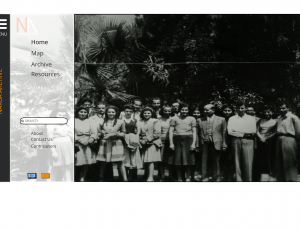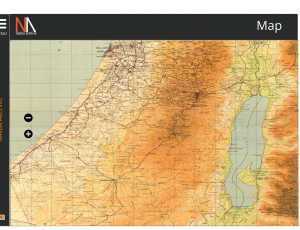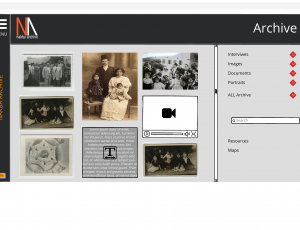This past year, the Nakba Archive brought together a transnational team of educators, researchers and community organizers to confront current challenges and possibilities in teaching refugee history. In a series of virtual workshops, participants based in the Arab world, North America and Europe debated and developed pedagogical approaches and learning tools including interactive maps, virtual reality and immersive storytelling.
A key outcome of these exchanges was series of digital educational resources, to be piloted in focus groups this summer before publication on our bilingual website. These multimedia lesson plans draw on the Nakba Archive’s vast collection of filmed Palestinian refugee testimonies, dozens of which have now been translated and subtitled. Workshop participants further developed an ambitious research program to build digital teaching and research capacity, with a view to equipping educators to embed refugee history in primary, secondary, post-secondary and community-based curricula.
The Nakba Archive promotes interactive, virtual learning about forced migration, on grounds that strengthening understandings of the conditions affecting refugees today requires broadening access to the past. LERRN’s continued support has enabled us to break new ground in collaborative, open-access digital humanities, while furthering our aim to elevate and empower refugee voices in education and throughout civil society. The new website will be launched this summer, and will make available 30 video interviews subtitled in English, together with interactive lesson plans developed by scholars, refugee researchers and community members that situate these rich testimonies in their historical, political, economic, social and cultural contexts.


